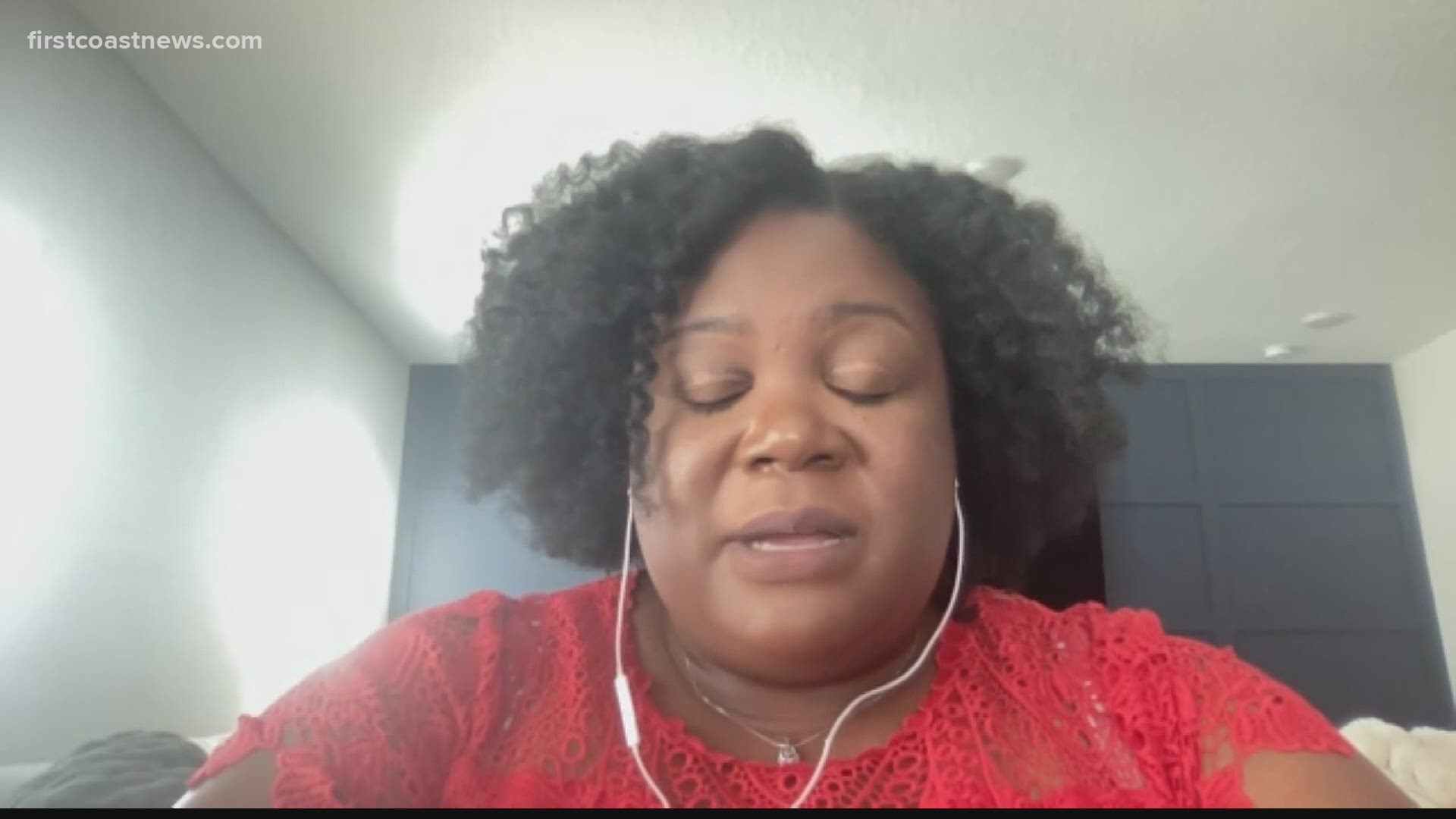JACKSONVILLE, Fla. — On Tuesday, people from across the country honored George Floyd with a moment of silence in the city where he died at the hands of police.
Former Officer Derek Chauvin was convicted in April of murder in Floyd’s death. Three other former officers await trial in the same case.
During Chauvin's trial, it was revealed he held Floyd under his knee for nine minutes and 29 seconds, while Floyd cried, "I can't breathe!"
The video captured by a teenager on her cell phone went viral and galvanized the racial justice movement, which continues to ripple a year later.
"The biggest things that we have seen so far is the continued outpouring of community and the cry for racial justice continues," said Kimberly Allen.
Allen is CEO of 904WARD, a nonprofit that works to create racial healing and equity.
"It is going to take quite a bit of time to undo the damage caused by racism and racist acts," Allen said.
What's changed in our community?
The Jacksonville City Council created a Social Justice committee that is working on improvements to the urban core communities. Corporations are more committed to diversity and inclusion.
And law enforcement agencies are slowly making changes.
"I personally came downtown and witness one of these marches and personally it was eye opening on many levels," said Melissa Nelson.
Nelson is the State's Attorney for the Fourth Judicial district, which includes Duval County.
Recently she spoke with First Coast News' Tracey Kailey about how her office was impacted by the protests.
Nelson said her office, which was under fire over a police-involved shooting case, was deliberating how to release police body cam video while protecting the integrity of an investigation.
She said after hearing the public outcry, she and her staff moved expeditiously to be more transparent.
"Our office in conjunction with law enforcement rethought the way we release certain evidence in certain cases and developed a policy that was responsive to the calls of the community," said Nelson.
Working with Sheriff Mike Williams, Nelson said they developed a procedure to release police body cam video within 30 days. There are certain stipulations to video being released, including the decedent's family objecting to the release, a witness still needs to be interviewed or a police officer dies during the incident,
Her office continues to explore ways to administer the law in a fair and just manner like using civil citations in misdemeanors.
Kimberly Allen said her nonprofit will continue to push for racial reconciliation.
"If we are going to make a change we have to do the hard work. It is not easy work, and it is uncomfortable work. But I am committed and I hope others are committed as well," Allen explained.
Allen said if there was ever a time to make meaningful change in this nation's race relations, the time is now.

